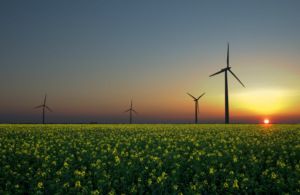News
Denmark world champs in addressing sustainable energy
This article is more than 9 years old.
Danes jumped up from sixth place compared to last year’s index

Sun rising on sustainable Denmark (photo: Jürgen from Sandesneben)
According to the 2016 Energy Index from the World Energy Council WEC), Denmark is the top nation in the world when it comes to the sustainability of national energy systems.
Denmark ranked first in the ‘Energy Security’ category, sixth in ‘Environmental Sustainability’ and tenth in ‘Energy Equity’ for an overall first place finish out of 125 nations.
“To overcome the challenges and reach its ambitious targets of becoming independent of fossil fuels and reducing CO2 emissions, Danish policymakers are focusing on the implications of: being fossil fuel free for the transport sector; the future role of the Danish natural gas grid; and the introduction of huge amounts of fluctuating renewable energy in the electricity grid,” the country profile for Denmark read.
Denmark moved up from sixth place on last year’s rankings and was ahead of Switzerland, Sweden, the Netherlands and Germany, while France, Norway, Finland, New Zealand and Austria completed the top 10.
Other notables included the UK (11), the US (14), Canada (22), Japan (30), Australia (31), South Korea (44), Russia (45), Brazil (57), Iran (78), China (87) and India (91).
African nations unfortunately dominated at the wrong end of the spectrum, led my Benin in last place. Niger, Nepal, Tanzania, Cambodia, Malawi, Chad, Ethiopia, DR Congo and Madagascar rounded out the bottom 10.
See the Energy Index here (in English).
READ MORE: Denmark helping fan wind energy across Indonesia
Winning with wind
In related news, the 2016 Global Wind Energy Outlook report has further underlined Denmark’s sustainability ambitions by listing the nation as producing the third most energy from offshore wind turbines in the world.
The Danes still find themselves trailing Germany and the UK, but one tenth of the world’s offshore wind turbines are actually situated in Danish waters.
“Early on in Denmark we developed a special environment for the development, production, establishment and running of offshore wind turbines,” said Anders Stouge the deputy head of the Danish energy association, Dansk Energi.
“All along the value chain Danish companies are getting involved – even when it’s for offshore wind turbines being erected in Germany, the Netherlands or the UK.”










































